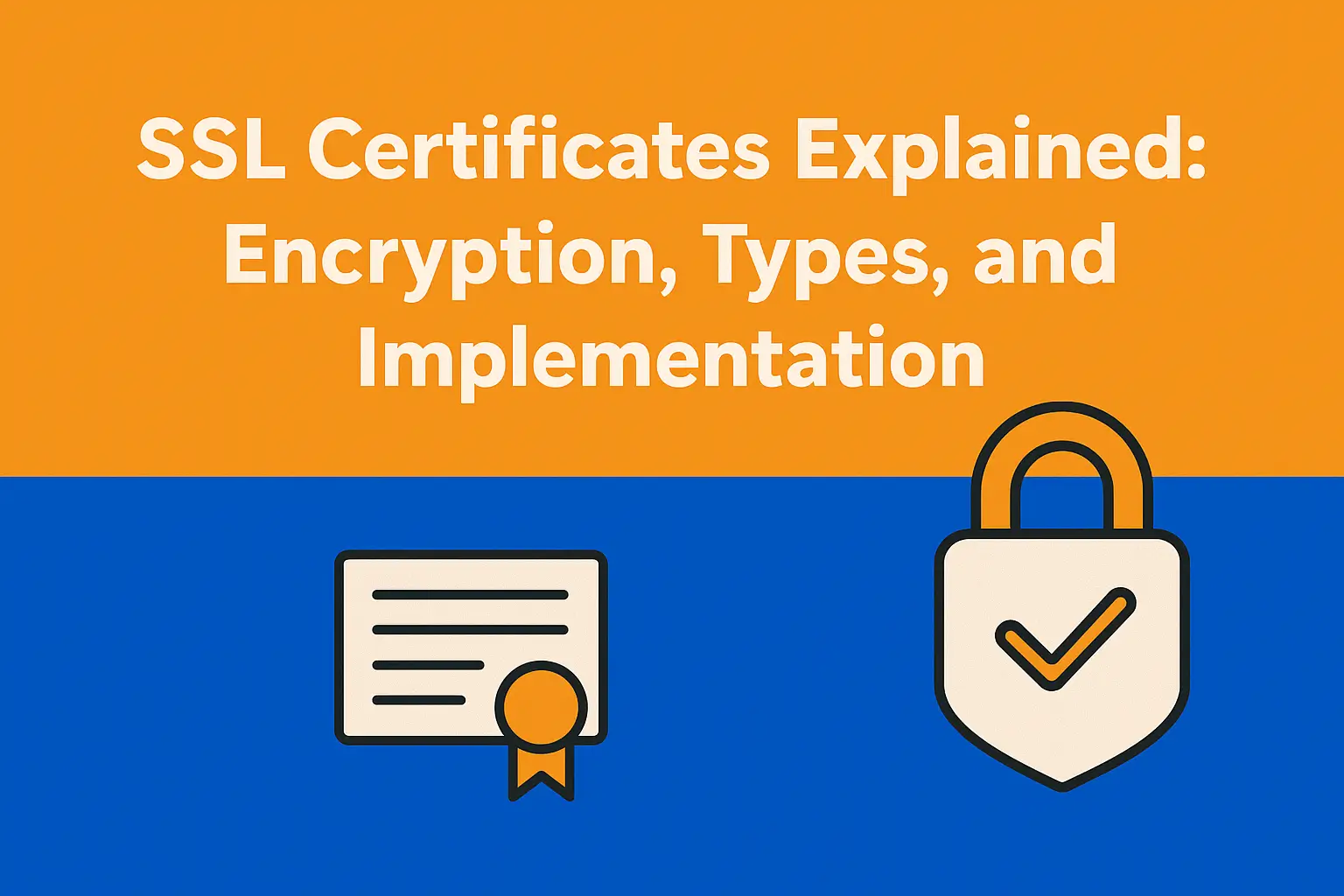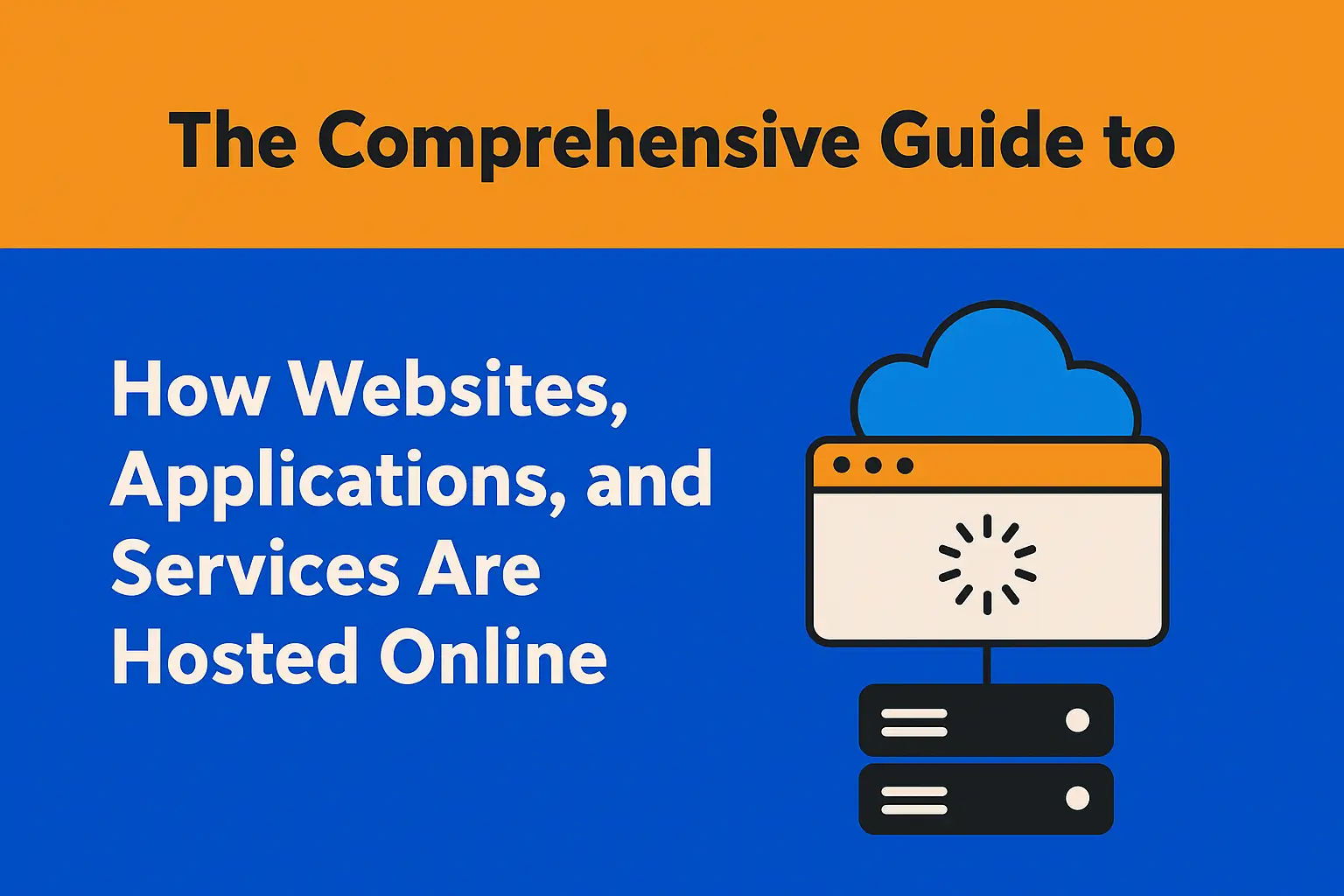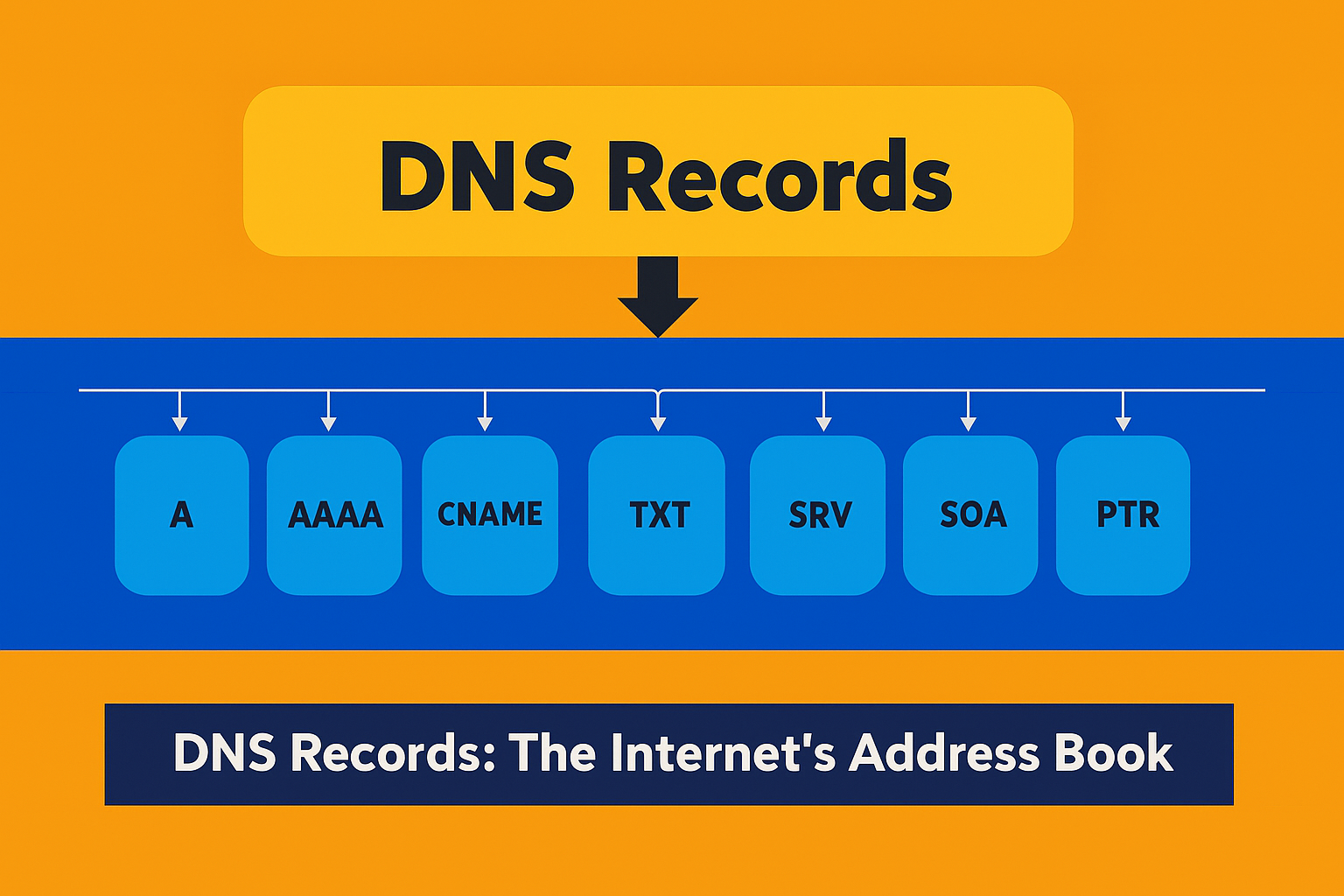
Introduction to Web Hosting
Web hosting is an essential service for anyone looking to establish an online presence. At its core, web hosting involves providing storage space and access for websites on specialized computers known as servers. When users want to visit a website, their browsers retrieve files from these servers and display the site to them. Without web hosting, websites would not have a place on the internet, making it impossible for users to access them.
Web hosting services vary significantly in terms of resources, costs, and the level of control they provide to website owners. Several common types of web hosting solutions are available to cater to different needs. For example, shared hosting involves multiple websites sharing the same server resources, making it a cost-effective option for small to medium-sized websites. In contrast, dedicated hosting offers a dedicated server for a single website, providing more robust resources and control, which is advantageous for larger websites with high traffic volumes.
Other types of web hosting services include Virtual Private Servers (VPS), which exist between shared and dedicated hosting in terms of control and cost, and cloud hosting, which distributes resources across multiple servers for scalability. Each of these web hosting solutions is designed to meet specific requirements and varying levels of demand. Understanding these differences is crucial as it allows website owners to choose an appropriate hosting plan that aligns with their specific needs.
In this blog post, we focus specifically on shared hosting and dedicated hosting, examining the primary distinctions between the two, their advantages, and potential drawbacks. This comparison will help you make an informed decision on which type of hosting is right for you based on your website’s needs and future goals.
What is Shared Hosting?
Shared hosting refers to a type of web hosting where multiple websites are hosted on a single server. By sharing the server’s resources such as CPU, RAM, and storage, these websites operate alongside each other, making efficient use of a single physical machine. This setup allows web hosts to distribute costs among numerous users, thereby offering a more affordable hosting solution compared to other forms.
This cost-effectiveness is one of shared hosting’s primary advantages, making it an attractive option for small businesses, personal blogs, and startups that are mindful of their budgets. The ease of use associated with shared hosting is another significant benefit. Most shared hosting plans come with comprehensive administrative tools, such as control panels and one-click installers, simplifying the process of managing a website. For users who may not be technically savvy, these features offer a hassle-free experience.
While shared hosting offers numerous benefits, there are some limitations to consider as well. Since the server’s resources are distributed among multiple websites, heavy traffic on one site can impact the performance of others. This potential for reduced performance can be a critical drawback for businesses that require fast and reliable website access. Moreover, shared hosting can introduce security risks. The shared nature of the server means that if one site is compromised, others could potentially be exposed to malicious attacks.
Nevertheless, shared hosting remains a popular choice due to its balance of cost, convenience, and sufficient resources for smaller-scale operations. It provides an accessible entry point for individuals and businesses looking to establish an online presence without incurring significant expenses.
What is Dedicated Hosting?
Dedicated hosting is a type of web hosting where a client leases an entire server exclusively for their website or applications. This unique setup ensures that the server’s resources are not shared with any other user, thereby offering various benefits centered around performance, control, and security.
One of the primary advantages of dedicated hosting is enhanced performance. Since the server’s resources, including CPU, RAM, and bandwidth, are entirely allocated to a single client, the hosted website can handle high traffic volumes and resource-intensive applications with ease. This translates to faster load times and a smoother user experience.
Dedicated hosting also grants greater control over the server’s configuration. Clients can install custom software, choose their operating systems, and adjust server settings to precisely fit their needs. This level of customization is particularly valuable for businesses with specific technical requirements or those aiming to run specialized applications.
Security is another significant benefit of dedicated hosting. As the server is not shared, the risk of security breaches originating from neighboring sites is virtually eliminated. Clients can implement rigorous security measures tailored to their unique needs, such as advanced firewalls, intrusion detection systems, and comprehensive updates and patches. This robust security framework is essential for websites that handle sensitive data, including e-commerce sites and those in the financial sector.
However, dedicated hosting comes with certain drawbacks. The most notable is the higher cost compared to shared hosting. Leasing an entire server is inherently more expensive and may not be justifiable for small businesses or websites with limited traffic. Additionally, managing a dedicated server requires a significant level of technical expertise. Clients often need to handle server maintenance, troubleshooting, and updates, which can be challenging without a skilled IT team.
In essence, dedicated hosting is a powerful solution for businesses and individuals requiring top-notch performance, extensive control, and enhanced security. While it involves higher costs and technical demands, the advantages offered make it an ideal choice for those ready to leverage its full potential.
Performance Comparison
When evaluating the performance of shared hosting vs dedicated hosting, it is imperative to consider how each setup allocates resources and impacts website speed and stability. Shared hosting involves multiple websites utilizing the same server resources, which can lead to fluctuations in performance. If one website experiences a spike in traffic, it can slow down the other websites on the same server. This shared resource model can result in related challenges such as increased load times and occasional downtime. Conversely, dedicated hosting provides exclusive access to server resources, ensuring that no other websites impact the server’s performance. This guarantees consistent speed and robust stability for hosted websites.
In real-world scenarios, the disparities between shared hosting and dedicated hosting become particularly evident. For example, e-commerce websites with high levels of traffic stand to benefit significantly from the dedicated resources and enhanced performance of dedicated hosting. Similarly, large-scale applications and data-intensive operations, such as online gaming platforms and SaaS services, demand the reliability and speed achievable with dedicated servers. On the other hand, small businesses and personal blogs that do not require substantial resources may find shared hosting sufficient for their needs. These websites often have lower traffic volumes, where the cost-effectiveness of shared hosting outweighs the occasional slowdowns they might encounter.
In summary, the choice between shared hosting and dedicated hosting hinges on the specific performance requirements of your website. Shared hosting’s resource allocation, while economizing, can compromise speed and reliability under high traffic loads. Conversely, dedicated hosting offers unparalleled performance by dedicating all server resources to a single client, ensuring that high-traffic or resource-heavy websites operate seamlessly. Understanding these performance dynamics helps in making an informed decision that aligns with your website’s operational needs.
Cost Analysis
When evaluating the cost implications of shared hosting versus dedicated hosting, several factors come into play. Shared hosting is often the entry-level option, characterized by its affordability. Initial setup costs for shared hosting are minimal or sometimes even waived by hosting providers to attract new customers. Monthly or annual fees for shared hosting typically range from $2 to $15, depending on the service tier and the specific hosting provider. These costs often include a suite of basic features such as storage space, bandwidth, email accounts, and customer support.
On the other hand, dedicated hosting represents a more substantial financial commitment. Initial setup costs for dedicated hosting can be high, involving fees for server configuration and sometimes even for purchasing necessary hardware. Monthly costs vary significantly, generally beginning around $80 and potentially exceeding $500 depending on the server specifications, bandwidth requirements, and additional services. It’s important to consider hidden costs as well. While shared hosting packages may sometimes require additional fees for enhanced security features, backups, or customer support upgrades, dedicated hosting can incur extra costs for services like enhanced server management, custom software installations, or hardware upgrades.
For small businesses, bloggers, or startups with limited budgets, shared hosting often provides excellent value. The lower costs enable them to establish an online presence without a considerable financial outlay. Larger businesses or those expecting high traffic volumes, however, may find dedicated hosting to be more cost-effective in the long term due to its superior performance, customization options, and enhanced security features. Although the upfront and ongoing costs are higher, dedicated hosting can offer the reliability and resource availability necessary for businesses that cannot afford downtime or sluggish website performance.
Thus, while shared hosting may be the economical choice for smaller-scale operations, dedicated hosting provides significant advantages for larger enterprises or those with specific technical requirements, justifying the higher expense through improved service quality and reliability.
Security Considerations
When evaluating shared hosting and dedicated hosting, security is a critical factor where the differences become particularly pronounced. Shared hosting, by its nature, entails multiple websites residing on the same server. This setup inherently introduces several security vulnerabilities. One of the most pressing concerns is the risk of cross-site contamination. If one website on the shared server falls prey to a cyber attack, it can potentially compromise the entire server environment, thereby affecting all the hosted websites. Additionally, shared hosting often comes with limited access to server configurations and security settings, which leaves users dependent on the hosting provider’s security protocols and measures.
On the other hand, dedicated hosting stands as a robust solution concerning security. Since the entire server is allocated to a single user, there is an exclusive environment where external threats are significantly minimized. This isolation ensures that vulnerabilities from other websites do not pose a risk. Moreover, with dedicated hosting, users have full administrative access to the server. This control allows for the implementation of customized security measures, such as advanced firewalls, intrusion detection systems, and tailored encryption methods. It also enables regular software updates and patch management practices tailored specifically to the user’s requirements.
Beyond these inherent security advantages, dedicated hosting allows for enhanced monitoring capabilities. Users can deploy comprehensive monitoring tools to keep a vigilant watch on server activity in real-time, enabling quick detection and response to potential threats. Additionally, dedicated hosting often supports more stringent compliance with industry-specific regulations, such as HIPAA for healthcare data or GDPR for European Union data protection laws.
In summary, while shared hosting may suffice for smaller, less critical websites with constrained budgets, dedicated hosting provides unparalleled security benefits. Its intrinsic isolation, combined with comprehensive control and customizable options, makes it a preferable choice for businesses seeking to safeguard sensitive data and ensure a robust defense against cyber threats.
Scalability and Flexibility
When assessing scalability and flexibility in the realm of web hosting, the differences between shared hosting and dedicated hosting are pronounced. In shared hosting environments, one of the primary challenges is resource allocation. Websites share a single server’s resources, which can lead to limitations in scalability. As your site’s traffic grows, you may encounter performance bottlenecks due to the fixed amount of resources, such as CPU, RAM, and bandwidth, that must be shared with other tenants on the server. Server congestion can further exacerbate this issue, especially during peak traffic times, thereby impacting the overall user experience.
Conversely, dedicated hosting offers a significant advantage in terms of scalability. When you opt for a dedicated server, you gain control over the entire server’s resources. This exclusive access means that growth is straightforward; you can upgrade hardware components like memory, storage, and processing power as your needs evolve, without worrying about competing for resources with other users. The enhanced customization options inherent to dedicated hosting allow for tailored software and hardware configurations that suit the specific requirements of your website or application.
Flexibility is another critical factor where dedicated hosting outshines its shared counterpart. With shared hosting, your flexibility is often limited to predefined settings and software dictated by the hosting provider. Changes to server configurations or installations of specific software may not be possible due to compatibility issues or restricted permissions. However, dedicated hosting grants you full administrative access, meaning you can install any software, run specialized applications, and modify server settings to optimize performance and security according to your individual needs.
Ultimately, the choice between shared hosting and dedicated hosting will hinge on your specific needs for scalability and flexibility. Businesses or individuals expecting rapid growth and requiring sophisticated customization will likely find dedicated hosting to be the superior choice, whereas smaller websites with consistent traffic might manage well within a shared hosting environment.
Choosing the Right Hosting for Your Needs
When faced with the decision between shared hosting and dedicated hosting, it is crucial to evaluate several key factors to ensure your website’s requirements are met efficiently. These factors include website size, traffic expectations, budget constraints, technical expertise, and long-term objectives. A systematic approach to assessing these determinants can significantly ease the decision-making process.
Website Size and Complexity
The size and complexity of your website are primary considerations. For small to moderate-sized websites with fewer resources and lower complexity, shared hosting often suffices. This type of hosting involves multiple websites sharing the same server resources, making it more economical. However, for larger, more complex websites requiring extensive resources, dedicated hosting provides the necessary scalability and isolation, as only your website occupies the server.
Traffic Expectations
Forecasting your website traffic is another critical aspect. Shared hosting is suitable for websites expecting low to moderate traffic. As multiple websites utilize the same server, the performance may dip during traffic spikes. Conversely, dedicated hosting ensures consistent performance even during high-traffic periods, making it ideal for websites anticipating significant visitor numbers.
Budget
Budget constraints play a pivotal role in your decision. Shared hosting is considerably more cost-effective, as subscription fees are distributed among users. This option is attractive to startups and small businesses with limited budgets. On the other hand, dedicated hosting is a high-investment solution, justified by the exclusive use of server resources, enhanced performance, and greater flexibility—worth considering if the budget allows.
Technical Expertise
Technical expertise cannot be overlooked. Shared hosting providers typically manage server maintenance, updates, and security, making it an excellent option for users with limited technical skills. Dedicated hosting grants full control over the server’s configuration and management, thus requiring substantial technical proficiency or the price of hiring a dedicated IT professional.
Long-term Goals and Scalability
Lastly, your long-term goals and scalability plan must be factored in. Shared hosting is beneficial for short-term projects and small-scale websites. However, if you anticipate growth, dedicated hosting offers the scalability necessary to accommodate future expansion without compromising performance.
Above all, creating a decision matrix or checklist integrating these considerations will assist in making an informed choice. Evaluating your specific needs through this lens can lead to a hosting decision aligned with your website’s success trajectory.
Conclusion: Making the Final Decision
When deciding between shared hosting and dedicated hosting, it is essential to weigh the specific needs and circumstances of your website. Throughout this article, we have delved into the fundamental differences, advantages, and disadvantages of both hosting options.
Shared hosting is often the choice for individuals or small businesses prioritizing cost-effectiveness and simplicity. It offers a low-cost entry point with a straightforward setup, making it suitable for less complex websites with moderate traffic. However, it does come with limitations. Shared resources can lead to slower performance and reduced reliability, particularly as traffic increases. Security can also be a concern since multiple websites share the same server environment.
On the other hand, dedicated hosting provides a higher level of control, performance, and security. This option is ideal for larger businesses or websites that experience high traffic volumes and demand robust, customized solutions. Despite its higher cost, the investment can be justified by the superior capabilities, reliability, and enhanced security measures dedicated hosting offers. Additionally, having a server entirely at your disposal allows for significant customization and optimization tailored to your specific needs.
The choice ultimately hinges on your website’s particular requirements. For smaller, less demanding sites, shared hosting may suffice and serve its purpose effectively. Conversely, for high-demand applications, e-commerce platforms, or enterprises requiring uncompromised performance and security, dedicated hosting stands out as the more appropriate option.
As you consider your options, reflect on the projected growth of your website, budget constraints, security needs, and performance requisites. By thoroughly evaluating these aspects, you will be well-equipped to make a well-informed decision that aligns perfectly with your hosting needs.





0 Comments